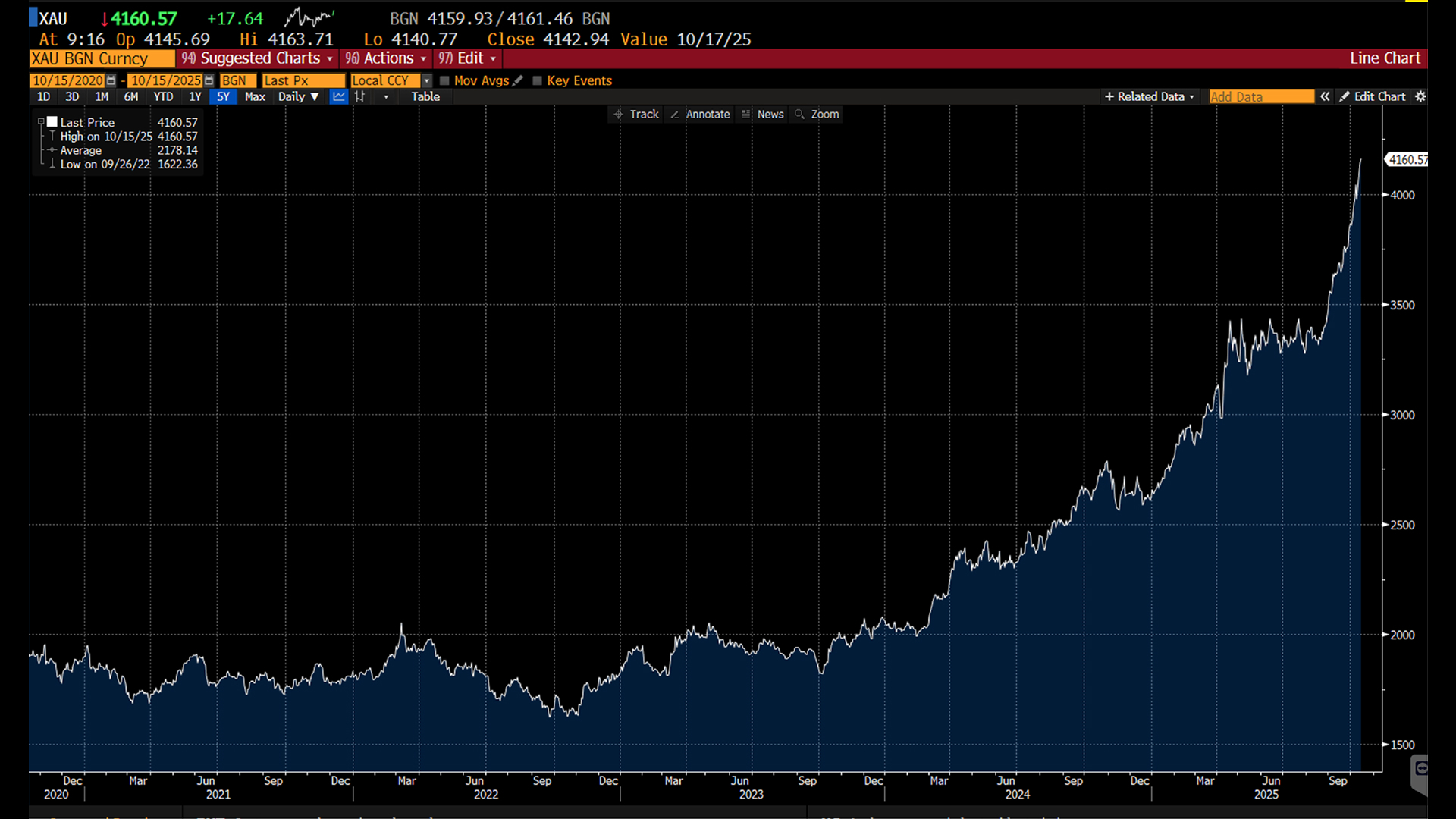The art of mispriced bets with Steve Johnson
Markets have a way of keeping even the sharpest investors humble. Just when conviction feels certain, momentum turns and sentiment shifts.
For Steve Johnson, Chief Investment Officer and founder of Forager Funds, that’s not frustration; it’s the fun part. Opportunity, he believes, lives in the disconnect between perception and reality, in the places others have stopped looking.
Johnson’s approach to investing was born not on the trading floor but at the racetrack. As a teenager, he realised success wasn’t about picking winners, but finding value where others misjudged the odds. That philosophy still anchors Forager’s process today: independent thinking, patience, and discipline.
With more than two decades navigating booms, busts, and everything in between, Johnson has developed a deep respect for market psychology; the forces that drive cycles and the lessons they leave behind.
When he’s not analysing balance sheets, he’s often running long distances or tinkering with new ideas, chasing the same sense of rhythm and focus that good investing demands.
In this week’s Q&A, Johnson reflects on shifting market sentiment, the fading fear around small caps, and why the best opportunities often emerge from chaos. From parabolic gold rallies to overlooked fallen angels, he explains why disciplined contrarianism remains one of the most powerful edges in investing.

What’s your most recent investment and why?
IDP Education (ASX: IEL) is the newest addition to our Forager Australian Shares Fund.
We have been watching this international student placement business closely for the past few years (the share price fell from almost $40 at its peak to less than $4 in June this year) and pulled the trigger in August for a couple of reasons.
Firstly, there were signs of stabilisation in its full-year results, and management announced helpful cost reduction targets for the coming financial year. And then the Australian Government announced it would be increasing quotas for international students in 2026.
Australia is an important market for IEL, but more importantly, it’s a sign that the tide might be turning in favour of the international student market again. This was a much-loved business a few years ago, and we don’t think there is anything stopping that from being the case again.
Which investment did you add to your watchlist this week?
None of them are new this week but there are plenty more fallen angels where we are chipping away at the research and watching for signs of recovery.
Dominos Pizza (ASX: DMP), Ingham’s (ASX: ING) and Reece (ASX: REH), to name a few, in Australia.
Globally, we have a couple of small-cap tech stocks on the research list – there are some interesting opportunities on the other side of the "AI kills software" trade.
What is the most recent investment you have trimmed or sold, and what drove this decision?
We sold the last of our Catapult (ASX: CAT) shares at the end of September.
It’s been a wonderful investment for Forager, bought when the company was completely off the radar for most investors, and the business has a bright future.
The company’s market capitalisation is now over $2bn, though, and it has been added to the ASX 200 and is well covered by the large brokers.
That doesn’t preclude it from being a good investment, but our expertise lies in the unloved and under-appreciated, and these days it is neither of those things.
What’s your favourite chart or data point from this week?
The parabolic escalation in the gold price rally is my favourite chart of the week.
There are lots of interesting fundamental reasons for gold’s popularity surge, including government budget deficits and central bank independence concerns.
But perhaps the most interesting facet at the moment is the global social-media-driven retail demand for the precious metal. Readers might have seen photos of the queues at ABC Gold Bullion in Sydney’s Martin Place. They might be less aware that there are the same queues in Tokyo.
The globally connected nature of the modern world means investor crazes spread and inflate faster than ever before.
From the metaverse to crypto to AI to gold, every stock or asset class is just one viral internet meme from its time to shine.

What was your weekly high – a standout market moment or highlight?
RPM Global (ASX: RUL) announced a $5 per share binding takeover offer from global equipment giant Caterpillar on Monday. We’ve owned the stock since 2019, and a takeover was a key part of the thesis from day one.
Management has done a great job growing the business and readying it for sale, and the attractive price attained – roughly 6 times our first purchase price – is a great reward for them and the rest of us shareholders.
What was your weekly low – a market disappointment or challenge?
The rapid recovery on Monday after Friday’s little pullback in equity markets was disappointing. We like buying cheap stocks, and the lack of interest in small-caps has been a great environment in the past few years.
The recovery in 2025 has been strong and, while there are still plenty of overlooked investment opportunities for now, the more markets rally the harder our job becomes.
What first drew you to markets or this sector and what continues to keep you inspired today?
My father regularly took me to the horse races as a teenager. He was just a casual punter, but my mathematical leanings led me to take an interest in the few professional gamblers who made a profit out of it.
I quickly learned that, while most people were trying to work out which horse would win, the professionals were looking for the mispriced bets. A horse paying $10 with a 20% chance of winning is a better bet than the $2 favourite with a 40% chance of winning.
It was a natural progression from that world, where you need to overcome the bookies’ margin, to financial markets where you generally have a tailwind behind you.
But the philosophy underpins the investment philosophy at Forager today.
We’re not just looking for the most likely winners; we’re looking for the mispriced bets.
From the impacts of new technologies to the role of passive money in markets, the game is constantly changing and that’s the best part about it. There is never a dull moment.
What’s one piece of advice you’d give to new investors?
If you are new and starting with a small amount of money, I’d say don’t be afraid to make mistakes. Try things, experiment with different investment styles, get some experience and work out what works best for your personality traits.
If you are new and starting with a lot of money due to inheritance, selling your house or taking control of a self-managed super fund, don’t stuff it up.
Diversify sensibly, keep your costs low and don’t forget that great Ben Graham quote:
“To achieve satisfactory investment results is easier than most people realise; to achieve superior results is harder than it looks.”
How do you unwind when you’re not thinking about the market?
I have more hobbies than I have time: running, cooking, reading, catching up with friends and stuffing about on chess.com for starters! I’d love to play more golf, but that might have to wait for retirement.

5 topics
3 stocks mentioned
1 fund mentioned
1 contributor mentioned

